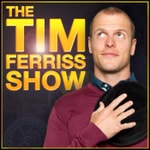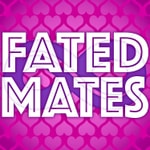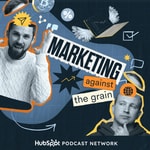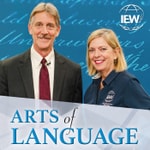Unfurling – Details, episodes & analysis
Podcast details
Technical and general information from the podcast's RSS feed.
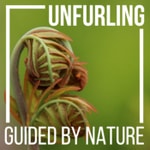
Unfurling
Elizabeth Wainwright & Catriona Horey
Frequency: 1 episode/29d. Total Eps: 23

Join us as we explore the power of the natural world to inform and inspire us -- in our everyday lives, and in the complex challenges the world is facing.
With nature as our guide (and drawing on our own experience in coaching and consulting, international work, non-profit management, writing, local politics, and community) we explore diverse topics like climate change, confidence, listening, health, economics, storytelling, and more.
We look from different perspectives - including science and art; city and rural; individuals and systems - and try to cross pollinate ideas and uncover new ways of thinking. We offer up personal experiences, as well as ideas and experiences from guests, books, and elsewhere, all the while asking what the natural world can teach us.
Unfurling is hosted by UK-based Catriona Horey and Elizabeth Wainwright. Elizabeth is a writer, a coach and consultant operating locally and globally, and an elected District Councillor. Catriona is a coach – specialising in leadership, life, climate change and nature coaching – and a coaching skills trainer.
Join the Unfurling Facebook group to carry on the conversation: https://www.facebook.com/groups/313645743154222
Hosted on Acast. See acast.com/privacy for more information.
Recent rankings
Latest chart positions across Apple Podcasts and Spotify rankings.
Apple Podcasts
🇬🇧 Great Britain - nature
04/10/2024#89🇬🇧 Great Britain - nature
03/10/2024#75🇬🇧 Great Britain - nature
02/10/2024#58
Spotify
No recent rankings available
Shared links between episodes and podcasts
Links found in episode descriptions and other podcasts that share them.
See all- https://www.duolingo.com/
150 shares
- https://sdgs.un.org/goals
149 shares
- https://www.robbieswale.com/
73 shares
RSS feed quality and score
Technical evaluation of the podcast's RSS feed quality and structure.
See allScore global : 94%
Publication history
Monthly episode publishing history over the past years.
How To Move Forward
Season 2 · Episode 11
vendredi 29 avril 2022 • Duration 01:11:01
It’s our season 2 finale! Join us, Elizabeth and Catriona, as we share this episode with Robbie Swale, a leadership coach and author of ‘How to Start When You’re Stuck’. Robbie helps us think about how each of us can move forward in a way that feels true - with creativity and persistence, and by choosing the next right steps.
The conversation ranges from the philosophical to the practical. Robbie touches on his experience of creative hell, the importance of releasing our creative potential, taking actions towards who we want to become, and trusting in an emergent creative process. The episode concludes with Elizabeth and Catriona reflecting on the topic - inspired by Robbie and by some unusual trees. We also share a special announcement about Unfurling’s next right step!
Robbie Swale is a writer and leadership coach whose work focuses on creativity, leading with honour, and the craft of coaching. Alongside his client work, he has run coaching, training and facilitation for organisations including Moonpig, the Royal Opera House, Swiss Re and the University of Edinburgh. He is the host of ‘The Coach’s Journey’ Podcast.
For more on Unfurling and to keep updated on our creative journey, please join our Facebook Group or visit our website.
~5 & ~52: “How to Start When You’re Stuck” by Robbie Swale
~10: Robert Holden
~15: “The Happiness Hypothesis” by Jonathan Haidt
~20 & ~52: “The War of Art” by Steven Pressfield
~20: Stephen Pressfield: “The more important a call to action is to our soul's evolution, the more Resistance we will feel about answering it.”
~21: Joel Monk
~27: “Show Your Work!” by Austin Kleon
~28: Seth Godin
~30: “Thinking, Fast and Slow” by Daniel Kahneman
~35: Olivia Owen
~37: “100 LinkedIn Articles - Key Lessons” by Alex Swallow
~39: Boyd Varty - The Lion Tracker’s Guide to Life
~41: Hermann Hesse
~44: Fred Kofman
~49: Free worksheet to design your own 12-Minute Method
~49: The 12-Minute Method Facebook group
~50: Duolingo
~52: “Big Magic” by Elizabeth Gilbert
~59: Palmeral de Elche
~60: The Huerto del Cura Garden
~62: Baobab trees
Hosted on Acast. See acast.com/privacy for more information.
Power: A Wider Lens
Season 2 · Episode 10
samedi 26 mars 2022 • Duration 34:12
Join us, Elizabeth and Catriona, as we explore Power - in ourselves, collectively, and in the natural world. We look at the awe that power can invoke, the pitfalls of power, and the possibilities in thinking about power differently.
We learn from power in nature: from obvious (tsunamis, hurricanes, crocodiles) to lesser known examples (mantis shrimps, mites) and nuanced expressions (glaciers, rivers, forests, elephants). We touch on topics linked to power: language; narratives; creation; destruction; inner belief; control; respect; listening; empowerment; history; myths; inclusion; and leadership. And we consider what might be possible if we choose to think about and connect with power differently and wholeheartedly.
For more on Unfurling, please join our Facebook Group or visit our website.
~2: Online Etymology Dictionary: Power
~6: Emily Dickinson
~7: Gorillas; eagles
~7, 13: Crocodiles, elephants, mantis shrimps, mites
~8: Hurricane Power
~12: “London” by William Blake
~14: Dalai Lama XIV
~15: “Empowerment”
~15: Gloria Steinem
~16: “The Death of Nature” by Carolyn Merchant
~18: Girl Power
~19: The Marvelous Mrs Maisel
~21: Ralph Waldo Emerson
~24: Robert Ingersoll
~24: Lord Acton: "Absolute power corrupts absolutely"
~24: Plato
~25: Harold MacMillan
~25: Ghanaian Proverb
~27: Viktor Frankl
~30: Mahatma Gandhi
~31: Woodrow Wilson
~34: The Butterfly Effect
Hosted on Acast. See acast.com/privacy for more information.
Waiting & Patience: "The Pace of Nature..."
Season 2 · Episode 1
vendredi 19 février 2021 • Duration 01:15:58
Welcome to Season 2! In this Season, we’ll set off on a journey in each episode to explore a particular topic using a nature lens. Like last season, we’ll share our own thoughts and learning, but this time round we’ll also stop off along the way to learn from guests, who we see as “guides”. Through our explorations, we hope to inspire new thoughts and ideas in ourselves, and our listeners.
In episode 1 of Season 2, we explore the concepts of Waiting and Patience:
- Start: We share our new approach to Season 2 and what’s drawing us to the topic of Waiting and Patience, as well as explore “What’s In a Word?”
- ~08:10: We join our first guide, Hamish Mackay-Lewis, a leadership and life coach, facilitator and meditation teacher. He has varied international experience working with people from all walks of life in business, the armed forces and not-for-profits. His passion is to work with groups and individuals to create space for reflection, renewal and reconnection with the wisdom of nature. He strongly believes that personal and spiritual development and reconnection to nature are prerequisites for societal and environmental regeneration. He aspires to a life of adventure, wilderness and exploration of the nature of consciousness and indigenous wisdom from around the world. Hamish shares more at http://www.hamishmackaylewis.com.
- ~28:50: We reflect on what Hamish shared and bring in our own experiences and reflections around waiting and patience, drawing from the natural world, including 31,800 year old germinating seeds, and gestation lengths in creatures.
- ~36:15: We move to our second guide, Lindsey Chapman, a TV and Radio presenter on BBC One, BBC Two, Channel 5 and Radio 4. Passionate about people, arts and the natural world, she has tackled complex subjects from climate change to the power of poetry. Brought up in rural East Yorkshire, Lindsey grew up with a deep appreciation of nature and green space. Lindsey shares more about her work and the charities and projects she supports here: http://www.lindseychapman.co.uk.
- ~63: We look at what we took away from our time with Lindsey as well as common themes brought up by both guides. We finish our journey by thinking about where we are now in terms of waiting and patience and how we want to be, going forward. We also pose some questions for our listeners to consider.
We hope you enjoy it (...despite Elizabeth's dodgy mic / audio quality in this episode!).
If you'd like to explore this and other topics further, you're very welcome to join our private Facebook group, 'Unfurling Podcast'.
---
References:
~5: “Waiting”, Online Etymology Dictionary: Multiple entries including to watch, to guard, to be awake
~5: “Patience”, Online Etymology Dictionary: “The quality of suffering or enduring; submission”
~7: Joyce Meyer: “Patience is not simply the ability to wait - it's how we behave while we're waiting.”
~18: John P. Milton’s “Way of Nature”
~23: Ralph Waldo Emerson: “Adopt the pace of nature: her secret is patience.”
~25: Brian Swimme: “If you let hydrogen gas alone for 13 billion years it will become giraffes, rose bushes and humans.”
~26: “The Wayfinders: Why Ancient Wisdom Matters in the Modern World” by Wade Davis
~37: Lindsey Chapman
~40: “Wild Animal Rescue Wins RTS Award”
~41: Chris Packham
~1:01: The Cloud Appreciation Society
~1:07: Fulton J. Sheen: “Patience is power. Patience is not an absence of action; rather it is "timing". It waits on the right time to act, for the right principles and in the right way.”
~1:10: The poem “Patience” by Rabindranath Tagore
~1:15: Jill Biden: “Life is difficult, and if you sit around waiting for fun to show up, you'll find yourself going without it more often than not."
Hosted on Acast. See acast.com/privacy for more information.
Season 1 Finale: "Celebrate Endings -- For They Precede New Beginnings"
Season 1 · Episode 10
vendredi 11 décembre 2020 • Duration 43:03
Our tenth episode of Unfurling, and the end of season 1!
In this episode, we take inspiration from a coaching 'completion' session, and think about:
- Our takeaways and highlights from having created episodes 1-9 (our listeners are a definite highlight!).
- The challenges we've experienced in making Unfurling, like technology and imposter syndrome.
- What we want to let go of as we look ahead; what we trust in; and what we're grateful for.
- Our thoughts on how season 2 might look a bit different -- namely, a new format with different segments and featured guests.
- Our hopes for Unfurling.
If you'd like to connect with others, or share ideas and resources, you're welcome to join our private Facebook group, here.
Thank you for listening -- and we hope to reconnect with you for season 2, in 2021.
-----
Please excuse Elizabeth's poorer than usual sound quality in this episode -- the microphone had clearly decided to try out the 'strategic non-action' that we mention in the episode ;-)
-----
References & quotes:
~3: Jonathan Lockwood Huie: “Celebrate endings - for they precede new beginnings.”
~5: Episode 5 (Confidence): Flamboyant Cuttlefish, Eclectus Parrots, Praying Mantises
~5: Episode 9 (Language): Prairie Dogs
~5: Episode 1, 3, 4, 9: References to Suzanne Simard’s work on underground forest networks, and how trees “talk” to each other
~6: Episode 6 (Connections & Networks): “Letter from the Birmingham Jail” by Martin Luther King Jr.: “Injustice anywhere is a threat to justice everywhere. We are caught in an inescapable network of mutuality, tied in a single garment of destiny. Whatever affects one directly, affects all indirectly.”
~8: Trailer
~9: Episode 4 (Listening): Eco-Acoustics and recording 3D sound portraits of primary equatorial rainforests
~10: Episode 4 (Listening): Henry David Thoreau: “It takes two to speak the truth - one to speak and another to hear.”
~12: Episode 2 (Climate Change): David Wallace-Wells: “When it comes to contemplating real-world warming dangers, we suffer from an incredible failure of imagination.”
~12: Episode 1 (Joy and Wonder): “The Overstory” by Richard Powers
~16: Episode 8 (Place): John Burroughs: “Do not despise your own place and hour. Every place is under the stars, every place is the center of the world.”
~20: Bonus Episode (About Unfurling & Us): E. O. Wilson: "We are drowning in information, while starving for wisdom. The world henceforth will be run by synthesisers; people able to put together the right information at the right time, think critically about it, and make important choices wisely.”
~27: “My Heart Leaps Up” by William Wordsworth:
“My heart leaps up when I behold
A rainbow in the sky:
So was it when my life began;
So is it now I am a man;
So be it when I shall grow old,
Or let me die!
The Child is father of the Man;
And I could wish my days to be
Bound each to each by natural piety.”
~28: Episode 1 (Joy and Wonder)
~29: Development”: “mid 17th century (in the sense ‘unfold, unfurl’): from French développer, based on Latin (from Google / Oxford Languages)
~30: Quagga -- https://en.wikipedia.org/wiki/Quagga
~36: “The wisest and noblest teacher is nature itself.” - Leonardo da Vinci
~36: “An Old-World Thicket” by Christina Rossetti:
“Such mirth they made, such warblings and such chat
With tongue of music in a well-tuned beak,
They seemed to speak more wisdom than we speak,”
~40: Wu Wei (Strategic Non Action) from the Tao Te Ching (“Do that which consists in taking no action and order will prevail,” -- https://qz.com/876067/the-chinese-principle-wu-wei-eliminates-the-need-for-lifehacks/
~c. 41: Soulcraft: Crossing into the Mysteries of Nature and Psyche” by Bill Plotkin -- https://www.amazon.co.uk/Soulcraft-Crossing-Mysteries-Nature-Psyche/dp/1577314220
~41: Episode 9 (Language): “My Octopus Teacher” on Netflix.
~43: “Feeling Good by Nina Simone”: “It's a new dawn, it's a new day, it's a new life for me, and I'm feelin' good.” -- https://www.azlyrics.com/lyrics/ninasimone/feelinggood.html
Hosted on Acast. See acast.com/privacy for more information.
Language: Singing Land Back Into Being
Season 1 · Episode 9
vendredi 20 novembre 2020 • Duration 42:10
* Episode title adapted from “Landmarks” by Robert Macfarlane. See ref. 19 below for quote.
In episode 9, on ‘language’, we touch on:
- How language in humans is ever-evolving, with the power to generate new meaning, identities, and relationships, or, to undermine these, and to divide.
- How nature words are being lost in childhood and adopted by technology and finance.
- Whether language is a human-only phenomenon and how this may influence how we interact with the natural world.
- Examples of language and/or communication within and between species, including prairie dogs, trees, octopi, and swans.
- How language, poetry and stories can help us reimagine ourselves, the natural world, and our connection to it; and how this may help us tackle climate change and promote conservation
If you'd like to explore this and other topics further, please join our private Facebook group, 'Unfurling Podcast'.
----
References:
~3: “Language”, Cambridge Dictionary: “a system of communication consisting of sounds, words, and grammar, or the system of communication used by people in a particular country or type of work”, “a system of communication by speaking, writing, or making signs in a way that can be understood, or any of the different systems of communication used in particular regions”, “in computer programming, a language is a system of writing instructions for computers.”
~5: “Language”, Online Etymology Dictionary: “speech, words, oratory; a tribe, people, nation" from Vulgar Latin linguaticum; "tongue," from Latin lingua, see here.
~6: History of the word ‘poet’
~6: The ’pepeha’ is a Maori way to introduce yourself. Short film here.
~7: Ralph Waldo Emerson, as quoted in “Landmarks”: “Language is fossil poetry…”
~8: “The History of the Countryside” by Oliver Rackham: how ‘landscape is lost’ through the loss of beauty, the loss of freedom, the loss of wildlife and vegetation and the loss of meaning, as shared in “Landmarks”.
~9: Words concerning nature culled in the 2007 “Oxford Junior Dictionary” as shared in “Landmarks”.
~10: “The Lost Words” by Robert Macfarlane & Jackie Morris -- https://www.thelostwords.org/lostwordsbook/
~14: “Speaking Nature’s Language”, The National Trust -- https://www.nationaltrust.org.uk/press-release/speaking-natures-language
(Research conducted by Dr Robbie Love, May-June 2019, from British language corpora)
~17: Definition and information about ‘natural resources’ here.
~19: “Landmarks” by Robert Macfarlane: “In both Lewis and Arizona, Language is used not only to navigate but also to charm the land. Words act as compass; place-speech serves literally to en-chant the land - to sing it back into being, and to sing one’s being back into it.”
~20: “'Dreich' is named most popular Scots word by Scottish Book Trust” --
https://www.bbc.co.uk/news/uk-scotland-50476008
~23: Excerpt from “Four Quartets” by T.S.Eliot: “For last year's words belong to last year's language, And next year's words await another voice.”
~25: Excerpt from “There is a Word” by Emily Dickinson: “There is a word, Which bears a sword, can pierce an armed man…”
~25: Nonviolent Communication, see here.
~26: “Can Prairie Dogs Talk?”, The New York Times Magazine -- https://www.nytimes.com/2017/05/12/magazine/can-prairie-dogs-talk.html
~30: “Exploring How and Why Trees ‘Talk’ to Each Other”, Yale Environment 360, here.
~31: “My Octopus Teacher” on Netflix.
~33: “Geoffrey Matthews Obituary”, The Telegraph -- https://www.telegraph.co.uk/news/obituaries/science-obituaries/9838073/Geoffrey-Matthews.html
~34: Bushmen in Southern Africa -- https://www.survivalinternational.org/tribes/bushmen
~35: “Wild Signs and Star Paths” by Tristen Gooley
~39: “Are We Losing Nature Language?”, The National Trust -- https://www.youtube.com/watch?v=vbCCR4kClIc&feature=emb_logo
~40: Audrey Hepburn: “For beautiful eyes, look for the good in others; for beautiful lips, speak only words of kindness; and for poise, walk with the knowledge that you are never alone.”
Hosted on Acast. See acast.com/privacy for more information.
Place: "Every Place is Under the Stars"
Season 1 · Episode 8
samedi 7 novembre 2020 • Duration 39:23
In episode 8, we explore the concept of Place. We touch on:
- How “place” weaves in physical location, locale, relationships and emotion; and traverses space and time
- How we, as humans, orientate ourselves with places in diverse ways -- from nomadic living to long-standing local communities; from cities to Areas of Natural Beauty
- How place is neurologically important for our emotional wellbeing, and how habitat loss may impact this
- What we may learn from the natural world -- including species which return to their birthplace to reproduce; and species which are endemic to a specific area
- How respecting and protecting, bridging and listening are important for human communities, and the natural world in relation to place
- How you may want to explore what place means to you and how you might contribute to help places thrive
If you'd like to explore this and other topics further, you're very welcome to join our private Facebook group, 'Unfurling Podcast'.
---
References:
Title is from John Burroughs: “Do not despise your own place and hour. Every place is under the stars, every place is the center of the world.”
~8: “Concept of Place”, National Geographic Resource Library -- https://www.nationalgeographic.org/topics/resource-library-concept-place/
~12: What3Words -- https://what3words.com/about-us and https://www.ted.com/talks/chris_sheldrick_a_precise_three_word_address_for_every_place_on_earth/reading-list
~14: Areas of Outstanding Natural Beauty (AONBs) -- https://landscapesforlife.org.uk/
~16: “A Field Guide to Getting Lost” by Rebecca Solnit -- https://canongate.co.uk/books/446-a-field-guide-to-getting-lost/
~20: Natal homing -- http://www.jspayne.com/php/SummaryGet.php?FindGo=Natal%20Homing
~22: “Places That Make Us” by The National Trust - https://www.nationaltrust.org.uk/places-make-us
~24: Lemurs -- https://www.discoverwildlife.com/animal-facts/mammals/facts-about-lemurs/
~28: “Topophilia”: “Love of place” (Greek)
~29: Survival International -- https://www.survivalinternational.org/progresscankill
~31: Gary Snyder: “Nature is not a place to visit. It is home.”
~32: John Muir: “Few places in this world are more dangerous than home. Fear not, therefore, to try the mountain passes. They will kill care, save you from deadly apathy, set you free, and call forth every faculty into vigorous, enthusiastic action.”
~33: John Muir: “I only went out for a walk and finally concluded to stay out till sundown, for going out, I found, was really going in.”
~34: “Wild animals are reclaiming cities and streets during coronavirus lockdown” -- https://nypost.com/2020/04/17/wild-animals-are-reclaiming-cities-during-coronavirus-lockdown/
~35: “Animal Geography”: “the study of the complex entanglings of human-animal relations with space, place, location, environment and landscape” -- https://en.wikipedia.org/wiki/Animal_geography
~36: Homeward Bound (film) -- https://www.imdb.com/title/tt0107131/
~36: Greyfriars Bobby -- https://www.historic-uk.com/HistoryUK/HistoryofScotland/Greyfriars-Bobby/
~36: March of the Penguins (documentary)
~38: Wendell Berry: ““There are no unsacred places; there are only sacred places and desecrated places.” (From 'How To Be A Poet')
~39: Genius loci: “the protective spirit of a place.”
Hosted on Acast. See acast.com/privacy for more information.
Renewal: Cherishing & Fostering Renewal
Season 1 · Episode 7
vendredi 23 octobre 2020 • Duration 54:19
In episode 7 of Unfurling, we spend time thinking about Renewal. We touch on:
· Possible dimensions of renewal -- psychological, emotional, physical, social, ecological and spiritual
· Renewal of us as individuals, and as a society
· Where we might need to foster -- or learn from -- renewal of the natural world, including in soil, rainforests and animals
· The role of destructive forces like fire in renewal
· How renewal isn't a given, and what this means for us
· The role of Sabbath - and similar concepts - in renewal
· Ways you might explore renewal in your own life
If you'd like to explore this and other topics further, you're very welcome to join our private Facebook group, 'Unfurling Podcast' -- click here.
---
References:
~4: Cambridge Dictionary -- “Renewal”: “the act or process of making changes to something in order to improve it so that it becomes more successful” and “a situation in which something begins again after having stopped for a period of time”
~7: The Natural Academy -- https://www.naturalacademy.org/: “Wellbeing is a personal state and experience related to holistic health outcomes: These holistic outcomes are the sum of our psychological, emotional, physical, social, ecological and spiritual health.”
~11: “The Letters of J.R.R. Tolkien” by J.R.R. Tolkien: "Certainly there was an Eden on this very unhappy earth.”
~12: “Keeping the Sabbath to keep the earth” (references Hebrew word ‘shamar’ as ‘loving care’) -- https://earthministry.org/keeping-the-sabbath-to-keep-the-earth/
~14: Wendell Berry: “The care of the Earth is our most ancient and most worthy, and after all our most pleasing responsibility. To cherish what remains of it and to foster its renewal is our only hope.”
~16: “Only 60 Years of Farming Left If Soil Degradation Continues” -- https://www.scientificamerican.com/articdale/only-60-years-of-farming-left-if-soil-degradation-continues/
~17: “To restore our soils, feed the microbes” -- https://theconversation.com/to-restore-our-soils-feed-the-microbes-79616
~18: Soil as a Carbon Storehouse: https://e360.yale.edu/features/soil_as_carbon_storehouse_new_weapon_in_climate_fight
~19: From “Little Gidding” by T.S.Eliot: "To be redeemed from fire by fire”.
~20: Fire-activated seeds -- https://www.britannica.com/list/5-amazing-adaptations-of-pyrophytic-plants
~22: “Deforested parts of Amazon 'emitting more CO2 than they absorb'” --
https://www.bbc.co.uk/news/science-environment-51464694
~27: Greenpeace -- https://www.greenpeace.org.uk/
~30: “Taking the Elephant out of the Room” -- https://conservationaction.co.za/media-articles/taking-the-elephant-out-of-the-room/
~32: United Nations information on the Reintegration of Child Soldiers -- https://childrenandarmedconflict.un.org/wp-content/uploads/2018/09/Reintergration-brochure-layout.pdf
~33: Sabbath and the idea of rest in the Bible, e.g. Genesis 2:2 “By the seventh day God had finished the work he had been doing; so on the seventh day he rested from all his work.”
~35: More audible birdsong -- https://www.countryliving.com/uk/wildlife/countryside/a32232860/dawn-chorus-lockdown
~38: Romans 12:2: "Do not be conformed to this world, but be transformed by the renewal of your mind.”
~39: “Does your body really replace itself every seven years?” -- https://science.howstuffworks.com/life/cellular-microscopic/does-body-really-replace-seven-years.htm
~42: “7 Chakra Life Cycles and Crisis Years We All Go Through” -- https://www.learning-mind.com/7-chakra-life-cycles-and-crisis-years/
~43: “Neuroplasticity”, Psychology Today -- https://www.psychologytoday.com/us/basics/neuroplasticity
~44: Carol Dweck's 'Growth Mindset’ -- https://fs.blog/2015/03/carol-dweck-mindset/
~48: “Hibernation Works for Bears. Could It Work for Us, Too?” --
https://www.nytimes.com/2019/11/15/science/hibernation-bears-winter-health.html
~49: Harper Lee: "Things are always better in the morning”
~52: “Metamorphoses” by Ovid: “As wave is driven by wave…”
Hosted on Acast. See acast.com/privacy for more information.
Health: "Nature Itself is the Best Physician"
Season 1 · Episode 6
vendredi 9 octobre 2020 • Duration 45:20
We explore health - at the individual, collective and planetary level. It’s a big topic, and we offer personal reflections as well as findings, ideas, and prompts from the natural world to inform and inspire you as you reflect on what health means for you – as an individual, organisation, or community.
We touch on:
- How individual and collective health intertwine
- How we might get into a more reciprocal relationship with the natural world
- Stress, from short term to chronic, personal to systemic
- Modern thinking as well as traditional and indigenous approaches
- The physical and psychological benefits of various forms of nature connection
- The role of the land in our health, and the health of the land, including farming and tribal lands
- Ideas to help you reflect on your own health
To carry on the conversation, join our Facebook group “Unfurling Podcast”: https://www.facebook.com/groups/313645743154222/
~~~~~
References:
~2: “All Across the Land” by Helen Macdonald, Vogue, August 2020
~2: Hippocrates: “Nature itself is the best physician.”
~3: T.S. Eliot: “The whole world is our hospital.”
~5: The Natural Academy -- https://www.naturalacademy.org/
~6: World Health Organisations: “Health”: “the state of complete physical, mental and social well-being and not merely the absence of disease or infirmity”
~7: Arukah Network -- https://www.arukahnetwork.org/: “Arukah”: “A Hebrew word meaning health, healing and restoration, whether physical, mental or spiritual.”
~11: Farmers’ mental health and suicide, various articles e.g. The Guardian https://www.theguardian.com/society/2018/dec/23/farmers-and-mental-distress-im-still-a-bit-ashamed-about-my-story
~14:How Hospital Gardens Help Patients Heal, Scientific American https://www.scientificamerican.com/article/nature-that-nurtures/
~14: The Healing Power of Nature, TIME magazine (hypertension reference). https://time.com/4405827/the-healing-power-of-nature/
~16: Richard Louv as quoted in “Ecopsychology: How Immersion in Nature Benefits Your Health” by Jim Robbins, Yale Environment 360 --
https://e360.yale.edu/features/ecopsychology-how-immersion-in-nature-benefits-your-health
~17: “Spending at least 120 minutes a week in nature is associated with good health and wellbeing” by Mathew P. White et al, Nature --
https://www.nature.com/articles/s41598-019-44097-3
~18: Forest bathing -- https://www.theguardian.com/environment/2019/jun/08/forest-bathing-japanese-practice-in-west-wellbeing
~19: “Out of the Woods” by Luke Turner
~20: “Croyde's cold water swim tackles mental health” -- https://www.radioexe.co.uk/news-and-features/local-news/cold-water-swimming-trail-to-beat-mental-health/
~23: “The short-term stress response – Mother nature’s mechanism for enhancing protection and performance under conditions of threat, challenge, and opportunity”, ScienceDirect -- https://www.sciencedirect.com/science/article/pii/S0091302218300293
~24: English Pastoral by James Rebanks
~26: “Only 60 Years of Farming Left If Soil Degradation Continues” -- https://www.scientificamerican.com/articdale/only-60-years-of-farming-left-if-soil-degradation-continues/
~29: Survival International -- https://www.survivalinternational.org/progresscankill
~31: “Indigenous wisdom can heal the planet” -- https://thehill.com/changing-america/opinion/497849-indigenous-wisdom-can-heal-the-planet
~32: “Alcohol and Aboriginal and Torres Strait Islander peoples”, Australian Government Department of Health -- https://www.health.gov.au/health-topics/alcohol/alcohol-throughout-life/alcohol-and-aboriginal-and-torres-strait-islander-peoples
~34: Bloomberg Healthiest Country Index (2019) in “These Are the World’s Healthiest Nations” -- https://www.bloomberg.com/news/articles/2019-02-24/spain-tops-italy-as-world-s-healthiest-nation-while-u-s-slips
~45: Rachel and Stephen Kaplan’s “Attention Restoration Theory” -- https://e360.yale.edu/features/ecopsychology-how-immersion-in-nature-benefits-your-health
~46: “The Peace of Wild Things” by Wendell Berry
Hosted on Acast. See acast.com/privacy for more information.
Confidence: A Daring Adventure
Season 1 · Episode 5
samedi 26 septembre 2020 • Duration 46:43
Join us as we explore the subject of confidence - in and with ourselves, others, and the wider world. We offer facts, ideas and prompts from the natural world to inform and inspire you as you reflect on what confidence means for you – as an individual, organisation, or community.
We touch on:
- How confidence can take many guises -- internal, external, authentic, projected, individual, collective
- How confidence can be intertwined with courage, values, trust and relationships
- Examples of confidence in the natural world that might help us to think creatively about what’s possible (we draw on swallows and geese; peacocks; cuttlefish; bowerbirds; parrots; praying mantises; and natural rhythms and cycles)
- Ideas to help you experiment with your confidence -- whether you’re based in the countryside, city or somewhere in between!
To carry on the conversation, join our Facebook group, “Unfurling Podcast”: https://www.facebook.com/groups/313645743154222/
-----
References:
~4: Swallow migration -- https://www.rspb.org.uk/birds-and-wildlife/wildlife-guides/bird-a-z/swallow/migration/
~6: Geoffrey Matthews Obituary (Catriona’s Dad) -- https://www.theguardian.com/environment/2013/feb/10/geoffrey-matthews
~6: Co-Active Training Institute -- https://coactive.com/
~8: Cambridge Dictionary: “Confidence” (Certainty): “The quality of being certain of your abilities or of having trust in people, plans, or the future”; Confidence (sure feeling): “A feeling of having little doubt about yourself and your abilities, or a feeling of trust in someone or something”
~9 Online Etymology Dictionary: “Confidence” from Latin confidentem: "firmly trusting, bold"
~9: Helen Keller: "Walking with a friend in the dark is better than walking alone in the light".
~13: Peacocks -- https://en.wikipedia.org/wiki/Peafowl
~14: “This cuttlefish is flamboyant on special occasions only”-- https://phys.org/news/2020-08-cuttlefish-flamboyant-special-occasions.html
~16: Bowerbirds -- http://www.bbc.co.uk/earth/story/20141119-the-barmy-courtship-of-bowerbirds
~16: Eclectus Parrots -- https://en.wikipedia.org/wiki/Eclectus_parrot
~19: “It's Praying Mantis Mating Season: Here's What You Need To Know” -- https://www.nationalgeographic.com/animals/2018/09/praying-mantis-mating-cannibalism-birds-bite-facts-news/
~23: Geese: “Flock co-operation: Birds take it in turns to lead” -- https://www.bbc.co.uk/news/science-environment-31060155
~25: “Last Child in the Woods” by Richard Louv
~25: “Wild Child: Coming Home to Nature” by Patrick Barkham
~27: “Spending time in nature can improve children's confidence” by Rowan Walker, UCL -- https://medicalxpress.com/news/2019-11-nature-children-confidence.html
~28: Simon Sinek: “Courage comes from those around you”
~30: “Only 60 Years of Farming Left If Soil Degradation Continues” -- https://www.scientificamerican.com/articdale/only-60-years-of-farming-left-if-soil-degradation-continues/
~32: Forest Schools -- https://www.forestschoolassociation.org/
~32: Wild in the City -- https://wildinthecity.org.uk/about/
~37: Helen Keller: “Optimism is the faith that leads to achievement. Nothing can be done without hope and confidence”
~38: Matthew 6: 25-30: “Look at the birds of the air, for they neither sow nor reap nor gather into barns; yet your heavenly Father feeds them [...] Consider the lilies of the field, how they grow: they neither toil nor spin; and yet I say to you that even Solomon in all his glory was not arrayed like one of these…”
~41: Ruth Bader Ginsburg: "That's what I think a meaningful life is. One lives not just for one's self but for one's community."
~41: Helen Keller: “Security is mostly a superstition. It does not exist in nature, nor do the children of men as a whole experience it. Avoiding danger is no safer in the long run than outright exposure. Life is either a daring adventure, or nothing.”
~46: Marianne Williamson: “And as we let our own light shine, we unconsciously give other people permission to do the same.”
Hosted on Acast. See acast.com/privacy for more information.
Listening: "The Earth Has Music For Those Who Listen"
Season 1 · Episode 4
samedi 12 septembre 2020 • Duration 01:02:26
Join us as we explore a seemingly simple, yet powerful, subject: listening. We offer a kaleidoscope of lessons, ideas and prompts from the natural world to inform and inspire you as you reflect on the topic of listening – as an individual, organisation, community and world. It's a slightly longer episode than usual -- there was lots we wanted to draw on and share!
In the episode, we touch on:
· How listening is core to our work in international development, local politics and coaching
· Where we see listening working well - and less well
· What's available, and what could be possible, as we listen more deeply to ourselves, each other, and the natural world
· How examples of listening in / to the natural world might help us to think creatively (we draw on bats; owls; evening primroses; dolphins; forests; and ecoacoustics in biodiverse ecosystems)
· What we can learn from collective listening, and silence, including in nature
· Ideas and resources to help you experiment with, enhance, and enjoy your listening
Listeners who wish to dive deeper can join our Facebook group, “Unfurling Podcast”, a community for asking questions and sharing reflections, ideas and resources: https://www.facebook.com/groups/313645743154222/
~~~~~
References:
~1: Undetermined source: “The Earth Has Music For Those Who Listen”.
~6: Bernard Baruch: "Most of the successful people I've known are the ones who do more listening than talking."
~6: Henry David Thoreau: “It takes two to speak the truth - one to speak and another to hear.”
~8: “Levels of Listening” in “Co-Active Coaching - 4th edition” by Henry Kimsey-House, Karen Kimsey-House, Phillip Sandahl, Laura Whitworth
~16: Owl hearing -- https://www.bto.org/our-science/projects/project-owl/learn-about-owls/owl-hearing and bat hearing -- https://www.scientificamerican.com/article/how-do-bats-echolocate-an/
~22: “Flowers can hear buzzing bees—and it makes their nectar sweeter”, National Geographic (https://www.nationalgeographic.com/science/2019/01/flowers-can-hear-bees-and-make-their-nectar-sweeter/)
~26: Film: ‘Climate of Concern’ by Royal Dutch Shell, 1991 https://www.youtube.com/watch?v=0VOWi8oVXmo
~31: “Dolphin Communication”, Dolphin Research Center (https://dolphins.org/communication) and “Dolphin Echolocation”, Dolphins World (https://www.dolphins-world.com/dolphin-echolocation/)
~34: Diogenes Laertius: "We have two ears and only one tongue in order that we may hear more and speak less."
~35: “Nature’s Internet: How Trees Talk To Each Other In a Healthy Forest” by Suzanne Simard (https://www.youtube.com/watch?v=breDQqrkikM)
~43: Listen First Project (http://www.listenfirstproject.org/)
~46: Larry King : "I remind myself every morning: Nothing I say this day will teach me anything. So if I'm going to learn, I must do it by listening."
~47: Fragments of Extinction (https://www.fragmentsofextinction.org/mission/)
~50: “A Wizard of Earthsea” by Ursula K. Le Guin: “For a word to be spoken, there must be silence. Before, and after.”
~50: “The Power of Silence: The Silence That Lies Within” by Richard Turner
~52: “Quiet: The Power of Introverts in a World That Can't Stop Talking” by Susan Cain
~53: Noise level and silent contemplation figures from “NG Live!: The Ragged Edge of Silence” (https://video.nationalgeographic.com/video/00000144-0a37-d3cb-a96c-7b3fbe600000)
~54: Sarah Broscombe and silent retreats (http://sarahbroscombe.com/)
~55: John Francis in “Walk The Earth...My 17-Year Vow of Silence” (https://www.ted.com/talks/john_francis_walk_the_earth_my_17_year_vow_of_silence)
~59: “How To Listen – 10 Expert Tips”, Arukah Network (https://www.arukahnetwork.org/post/211118#!)
~62: Stephen R. Covey: "Most people do not listen with the intent to understand; they listen with the intent to reply."
~63: “Dusk Chorus” documentary (https://www.fragmentsofextinction.org/dusk-chorus-film/)
~65: Dorothy Sarnoff: "Make sure you have finished speaking before your audience has finished listening.”
Hosted on Acast. See acast.com/privacy for more information.

